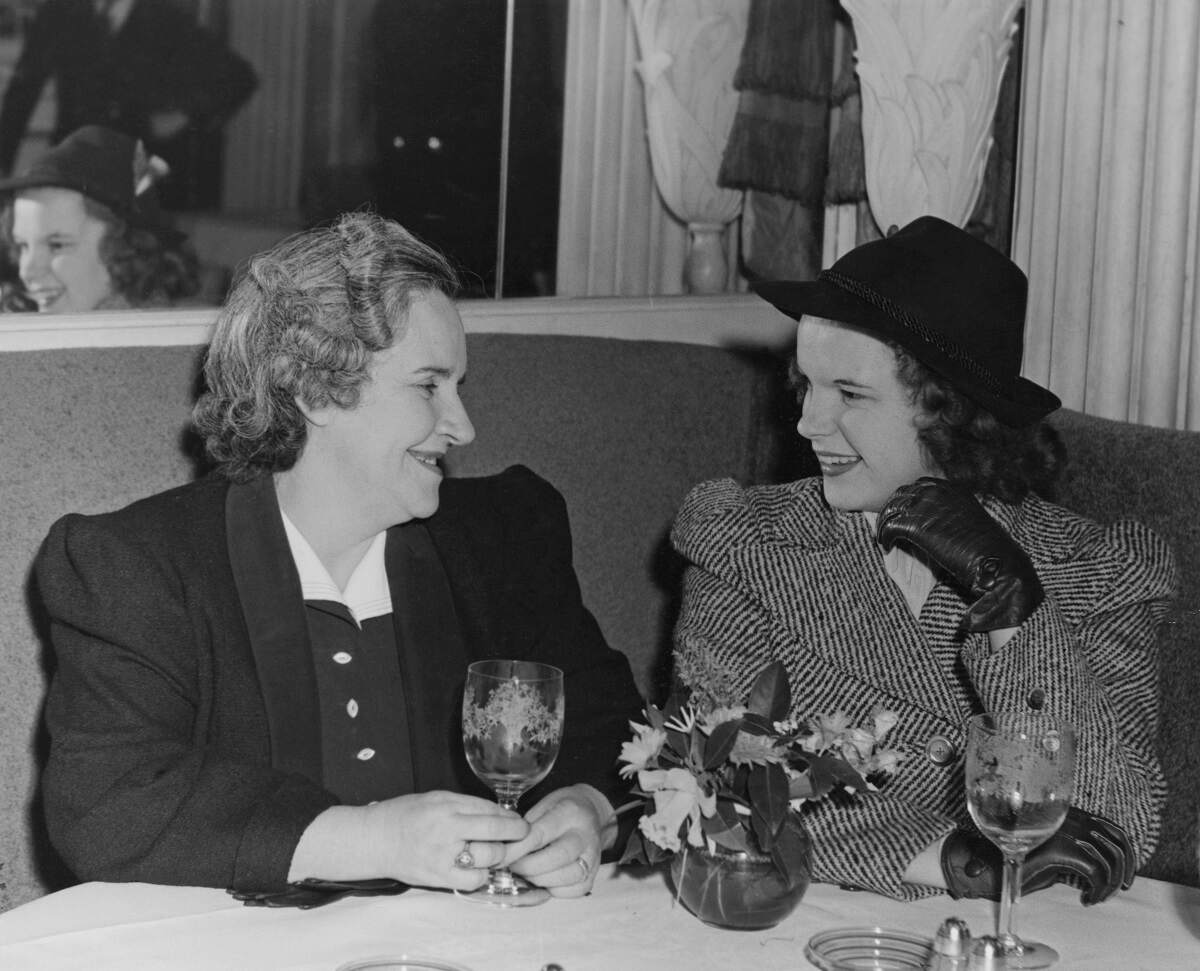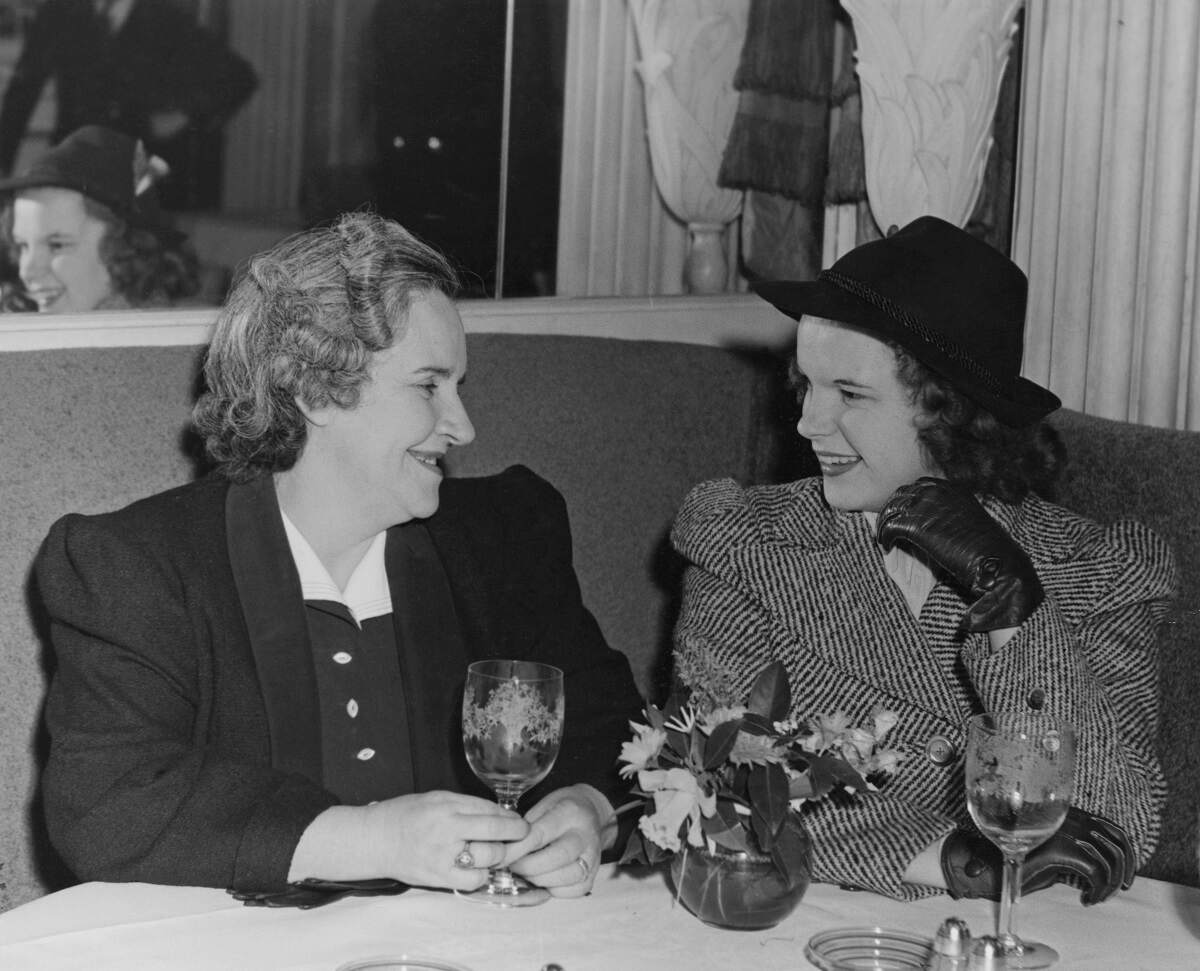
Judy Garland Never Felt ‘Wanted’ as a Child Actor: ‘Mother Decided We Had to Be Stars’
On paper, the career of Judy Garland is the stuff of dreams. She is one of her generation’s most acclaimed actors. And her breakthrough performance in The Wizard of Oz made Garland a household name as a kid. But we now know that child stardom can lead to a lot of negative consequences for those who achieve it. And the performer’s experience with early fame was defined by trauma more than any sense of enjoyment.
Judy Garland’s childhood is a prime example of the dark allure of Hollywood
Garland, born Frances Ethel Gumm, came from a family of entertainers. Her mother, Ethel, was a vaudeville performer and her father, Frank, owned a local movie theater. Judy started performing with her two sisters when she was 2. The trio continued to sing and dance together on the vaudeville circuit for years, often with Ethel providing the soundtrack on the piano.
Judy’s voice caught the ears of the studio Metro-Goldwyn-Mayer, who signed her to a contract when she was 13. MGM went to great lengths to transform Garland to fit their idea of a sweet girl next door. She was forced to wear removable caps on her teeth and prosthetics to reshape her nose. Per Biography, Garland was also ridiculed for her 5’0 frame and the curvature of her spine by the studio head Louis B. Meyer, who reportedly called Garland “my little hunchback.”
Her mistreatment became even more severe in the lead-up to The Wizard of Oz. The star was put on a strict diet and given pills to keep her skinny, work long hours, and go to sleep (when MGM allowed it). All of these moves were co-signed by Garland’s mother, who was desperate for her daughter to reach the heights of a leading lady. Garland won the Academy Juvenile Award at the Academy Awards for her performance — but it led to even more mistreatment.
Judy Garland’s mom forced her to pursue a career she didn’t want

Garland understood the oddities of her upbringing. Everything changed after the family left Minnesota to live in Lancaster, California. “From the day we arrived in Lancaster all the wonderful carefree fun and joy in my family began to vanish,” Garland said on an episode of PBS’ American Masters. “Suddenly mother decided we had to be stars. She started to drag us to anyplace someone important might see us.”
It’s hard to fathom how a parent could condone this sort of behavior towards their daughter. But Ethel was dealing with her own issues at the time. Her relationship with Frank was a fraught one. He regularly cheated on her with other men before his death due to meningitis in 1935. (Garland was 13 at the time.) It’s reasonable to think that Ethel through all of her energy behind Garland’s potential in response to her crumbling personal life. None of this excuses her actions, but it might explain why Ethel was so ignorant of Judy’s well-being.
“The only time I felt wanted when I was a kid was when I was performing,” the actress said in the book Judy Garland on Judy Garland: Interviews and Encounters.
The cycle of abuse continued even after Garland transitioned into legal adulthood. When she was 19, she became pregnant with the child of her first husband, the composer David Rose. Garland had an abortion at the behest of her mom and MGM, who still wanted her to stick to her prepubescent image.
Judy Garland’s success did little to soothe her emotional trauma
Garland never found peace with who she was or how the industry used her. She developed serious problems with pills and alcohol, spent some time in a sanitorium after a nervous breakdown in 1948, and tried to commit suicide multiple times.
Her adult career was typified by iconic highs and despairing lows. Garland’s brightest comeback led to her Oscar-nominated star turn in the 1954 remake of A Star Is Born. In 1961, she became the first woman to Album of the Year at the Grammys for her live album Judy at Carnegie Hall.
Garland’s ability to delight an audience never waned, but unfortunately, she could never kick her substance abuse issues away for long. She died in 1969 after an accidental overdose of barbiturates.


